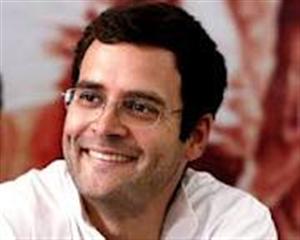It's an era of customised fitness books: Celebrity fitness trainers
Gone are the days when fitness books were synonymous with diet books or guide books carrying a huge list of do's and don'ts.
The recent years have witnessed multiple experiments in the genre of fitness books with new avatars hitting the book shelves while the experts believe 'customised fitness books' is the season's trend.
"No wonder how well researched and well written a fitness book is it can not prove useful for everyone. The fitness needs vary with certain factors like age, sex, health and much more and hence the need of 'customised fitness books' for different categories ", says Abhishek, celebrity fitness trainer.
Abhishek who has been training celebrities like Deepika Padukone, Ranbir Kappor, Kalki Koechlin, Sonam Kaoor, Salman Khan, Akshay Khanna, Anil Kapoor, Subroto Roy and Aditya Roy Kapoor has recently added a new category to the customized list with his book 'Fitness on go -For busy people'.
" Why should fitness books just fall into traditional categories. 'Busy people' is one such category which will involve majority of people. So, I chose to pen down this book for guiding anytime anywhere holistic workout for busy people" says Abhsihek.
" People today are not interested in fads, short cuts or some new clever way of exercising which promise results without any effort. They want books which can play the same role a fitness trainer will play for them." says Abhishek.
Another wellness expert Namita Jain who has written four fitness books for different age categories like Jaldi Fit (for adults), Jaldi fit kids (For kids), The four weeks countdown
diet and Figure it out (For teens) completed her series by penning down another book for old people titled 'sexy at sixty".
" People's approach towards fitness has drastically changed over years. Today fitness is not just recognised as toned muscles or flat stomach." says Namita adding, " A fitness regime suggested for a 30-year-old woman will not be beneficial for a teenage girl who wishes to have an hour glass
figure. Hence they need to have options to pick up books customised to suit their needs"
Namita who recently associated herself with ' Diet Mantra' for training dieticians in personalised fitness solutions says, " Apart from telling what is good for health of old people and what is not ' Sexy at sixty' also takes into account certain problems like Menopause, prostate enlargement and osteoporosis which are common at this age. "
" The readers don't just expect a checklist of things to be followed from the fitness books but also expect the book to have that kind of motivation that when they finish reading it the book does not only lie in their bookshelves but they also feel like following it regularly" says Abhishek.
Other books like 'Confessions of a serial dieter' by Kalie Purie and bestsellers like 'Don't Loose your mind, Loose your weight' and ' Women and weight loss tamasha' by Rujeta Diwekar also fall into the category and deal with specific issues pertaining to fitness which an average reader would like to read and follow rather than them just appealing the health experts.

















